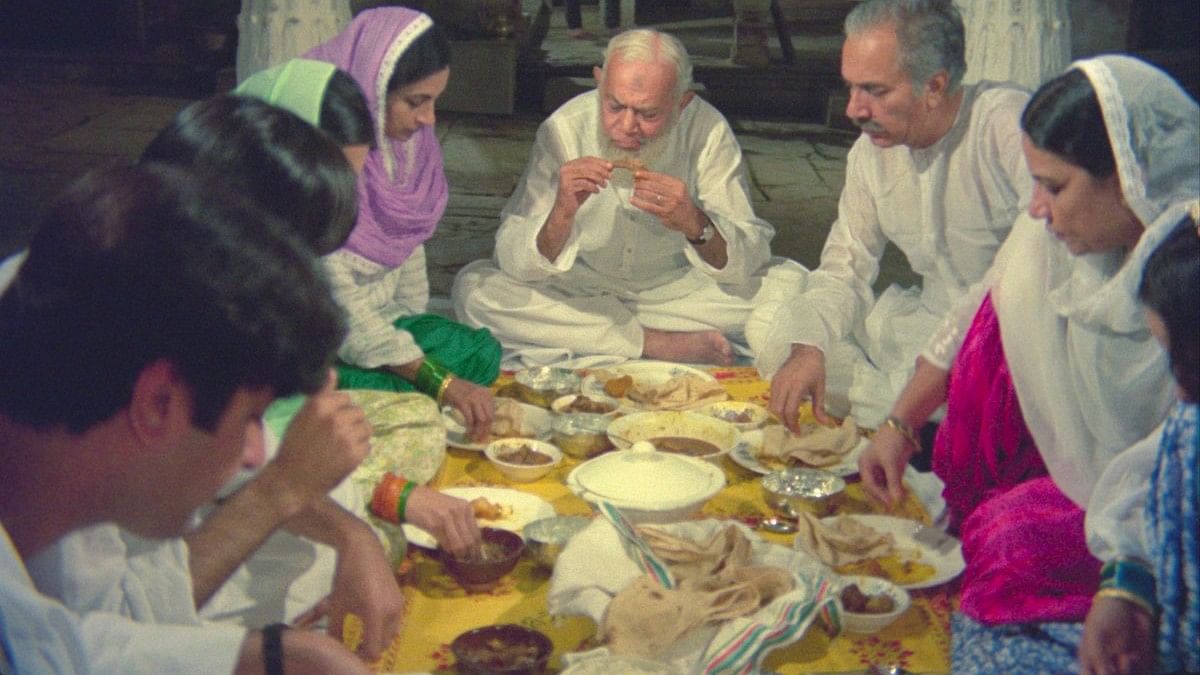
In 1974, M S Sathyu’s ‘Garm Hava’ painted a poignant picture of discrimination, deprivation and death through the slow disintegration of the Mirza family in Agra. Their sad plight mirrored that of Muslims in India in the aftermath of the Partition. However, despite professional setbacks, personal tragedies and even the suspicion of treason, the family’s patriarch, Balraj Sahni’s Salim Mirza, decides to stay back, joining his younger son, Farooq Shaikh’s Sikander, in a protest march against religious bigotry and unemployment.
Half-a-century after the release of this scorching social drama, not much has changed for the 200 million Muslims who chose not to migrate to Pakistan. The 2013 Muzaffarnagar riots, the abolition of Article 370 and the revocation of special status to Jammu and Kashmir in 2019, the inauguration of the Ram Temple in Ayodhya in 2024 on the site of the Babri Masjid demolished in 1992, the threat of the Citizenship Amendment Act (CAA) and National Register of Citizens (NRC) are just some of the reasons the bulldozed community continues to feel persecuted despite the secular nature of our Constitution. But few have left their homes and even fewer their homeland, choosing to fight for their rights through the ballot.
In the second phase of the Lok Sabha elections, a sex scandal shocked Karnataka following the circulation of more than 3,000 video clips, photographs and documents of alleged sexual assault by Prajwal Revanna,
J D (S) M P from Hassan. He has since been suspended. He was arrested by an all-woman team on his return from Germany where he had fled. His father and party leader, H D Revanna, was subsequently booked on charges of abducting their domestic worker who is seen being assaulted in one of the videos by his son. An FIR has been registered against the duo under Sections 354A (sexual harassment), 354D (stalking), 5O6 (criminal intimidation) and 509 (insult to modesty of woman) of the Indian Penal Code (IPC) at the Holenarasipura police station following accusations by alleged victims. What’s more, Prajwal has also been suspended by the party and has even lost his seat in the family stronghold.
One wonders if this sex scandal, along with the one in the West Bengal village of Sandeshkhali which led to the suspension and arrest of TMC politician Shahjahan Sheikh and six others, is the beginning of a revolt against feudal patriarchy, gender oppression and power hierarchy? The kind we saw in ‘Ankur’ 50 years ago.
Shyam Benegal’s first feature film as a director was reportedly based on true incidents and inspired by the Telangana peasant rising of the 1940s. It revolves around Ananth Nag’s Surya, who like his father, the village landlord, gets intimate with a poor, uneducated, lower caste woman who he hires to cook and clean for him. When his wife arrives, she throws out a pregnant Lakshmi — a National Award winning performance by Shabana Azmi — while Surya tries to persuade her to abort
the child.
Ironically, Lakshmi’s deaf-mute husband, Sadhu Meher’s Kishtayya, who had fled the village after being publicly humiliated for stealing toddy, is delighted she has got her wish of becoming a mother. He goes to a guilt-stricken Surya looking for work, but believing he has come to seek revenge for impregnating his wife, Kishtiyya is mercilessly lynched till Lakshmi rushes to his defense. Cursing her weak-willed and opportunist employer and lover, whose family has been exploiting the poor for years, she takes him home. But the incident has sown the first seedling of a rebellion against high-handed autocracy and the film ends with a little boy throwing a stone at Surya’s window and shattering the glass. Symbolic!
The highest grossing film of 1974 was ‘Roti Kapada Aur Makaan’, with writer-producer-director Manoj Kumar as Bharat, a graduate, who, unable to find a job and support his family, burns his degree in his father’s funeral pyre and joins a corrupt businessman. According to the India Employment Report 2024 (ILO), India’s youth account for almost 83 per cent of the unemployed workforce and the share of youngsters with secondary or higher education in the total unemployed has almost doubled from 35.2 percent in 2000 to 65.7 percent in 2022.
The parallels don’t end there. Manoj Kumar was reportedly inspired by Indira Gandhi with (the character) Bharat deciding to expose his employer, Madan Puri’s Nekiram, after listening to her Independence Day speech against hoarders. Thirty years later, her grandson and heir apparent, Rahul Gandhi, came up with his own magic formula to eradicate poverty. “If you are below the poverty line, then every year Rs 1 lakh khatakhat khatakhat aata rahega aur ek jhatke se hum Hindustan se garibi ko mita denge (will keep knocking into your accounts and in one stroke, poverty will be wiped out of India),” he promised women of poor households in the lead up to the Lok Sabha elections.
Indira Gandhi’s ‘Garibi hatao’ brought her back to power in the 1971 elections. Rahul’s plans of a countrywide caste census and wealth survey couldn’t stop Prime Minister Narendra Modi and a BJP-led coalition government from returning to power for a third term, but it has resurrected the Congress’s fortunes and given the country a strong opposition again.
Fifty years later, nothing much has changed.